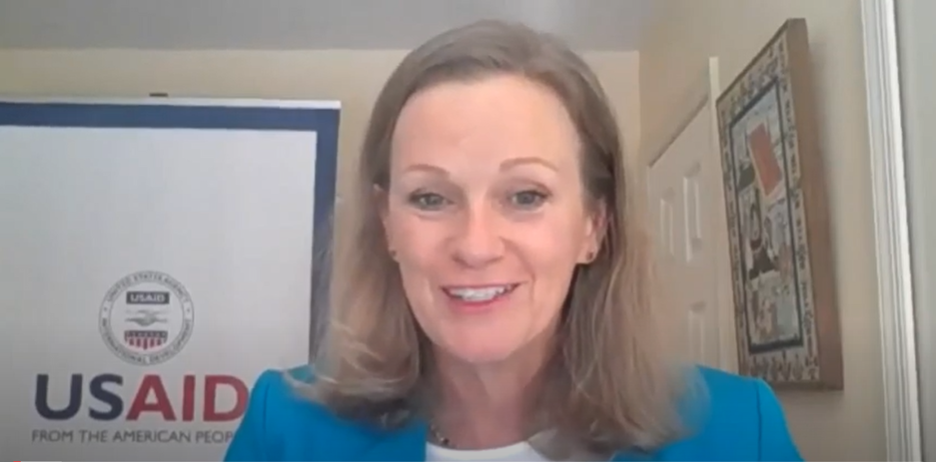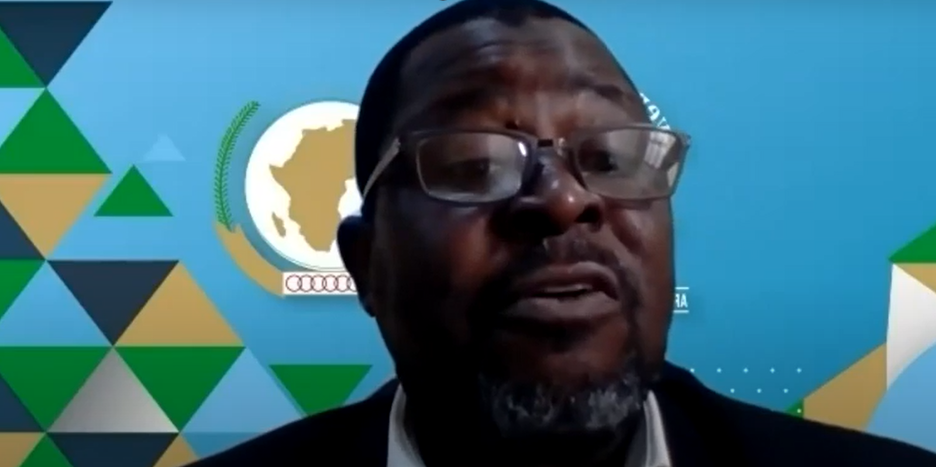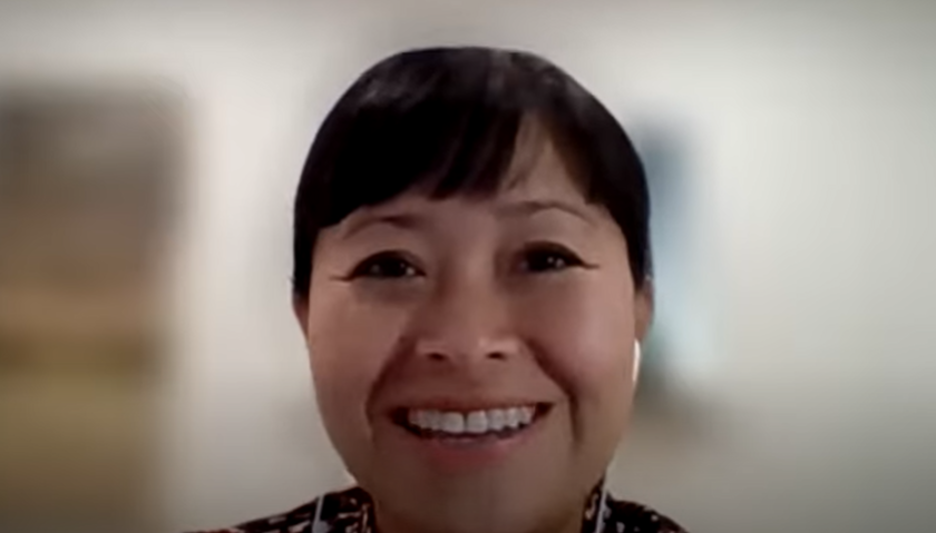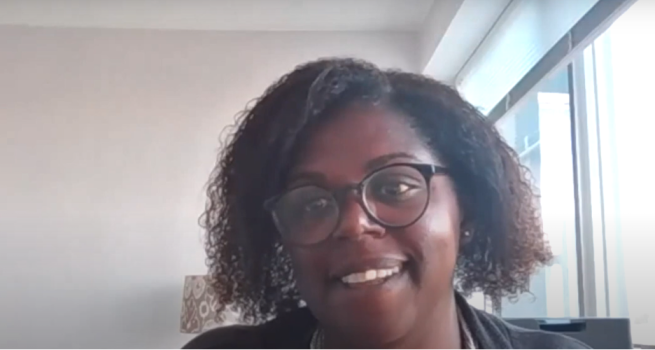Highlights from USAID and Partners at Stockholm World Water Week 2021
Stockholm World Water Week is one of the largest annual conferences for those working in water, sanitation, hygiene, and water resource management. This year’s event, similar to 2020, was held virtually, which enabled 13,000 people from 188 countries to participate. Speakers from all over the world presented solutions to the world's greatest water-related challenges under the theme Building Resilience Faster.
USAID and its implementing partners brought together diverse partners in Africa, Asia, and the Middle East to share outcomes, lessons, and research in 17 sessions throughout the week. These sessions touched on handwashing; integration of water programming with conservation, energy efficiency, and food security programming; making the business case for water resilience; and applying lessons from the COVID-19 pandemic to future resilience challenges.
The opening plenary session featured Mark Feierstein, Principal Advisor to the Administrator, USAID’s most senior Stockholm World Water Week participant to date. Principal Advisor Feierstein described water as a powerful tool to increase the health and resilience of both societies and nature.
“Water security is a powerful force that blunts the most severe impacts of climate change. Water security builds resilience by reducing conflict; it strengthens economies; it decreases disease; it improves food security; it slows migration; and it reduces the impact of natural disasters. So, when we’re investing in water, we’re really investing in resilience to climate change. So, building resilience is not just about the tap, the toilet, and the number of people reached; it’s about strengthening governance, strengthening finance, and the water systems around water services.” Mark Feierstein, Principal Advisor to the Administrator at USAID

Leveraging Untapped Leadership
Discussing Collaborative Action to Close the Gender Gap in WASH Workforce, USAID Center for WSSH Division Chief Portia Persley remarked on the ways that the Agency considered data and norms to retain women as key members of the WASH workforce.
“At USAID, we began to pivot our programming to focus more on the role of women in the WASH workforce, moving beyond this perspective of women as traditionally bearing the burden of collecting water… When women are empowered, they increase stability for the community overall. We know that recent studies have shown that including women in early stages of development activities really increases our ability to provide services over the long term… By working to change discriminatory legal, social, and cultural norms, activities can really enable women and girls to become water and sanitation change agents.”
Learning Lessons from the Pandemic
Applying WASH Lessons from COVID-19 to Future Resilience Challenges. Policy makers and service providers described lessons from the pandemic and described how those lessons can help build resilience to future climate shocks. In the first session, representatives from water service providers from Zambia and Brazil described the situation at the onset of the pandemic: an increased need for water and sanitation services, revenue loss due to business closures and emergency mandates, health and safety risks for workers. In the second session, panelists discussed government policies related to water and sanitation that were put in place during the pandemic. Read more about this session.
“The COVID-19 pandemic has challenged water security in unique ways... When the pandemic first hit, service providers, those working in water and sanitation, had to overcome enormous challenges just to meet basic needs...Given the role that water, sanitation and hygiene play in slowing the spread of disease and preparing economies to reopen safely, I think the global community expected extraordinary things from those service providers.” Maura Barry, interim Global Water Coordinator and Senior Deputy Assistant Administrator at USAID

“An unmistakable lesson from COVID-19 is that WASH systems are fragile and their fragility is laid bare by shocks. Extreme effects associated with climate change are similar to...the pandemic... We see reduced household spending, reduced service provider revenues, and stressed service provider operations, which compound in less WASH access. [S]hocks to the WASH sector, whether due to COVID-19 or the ongoing climate crisis, present themselves as mirrored images, giving us the unique opportunity to learn lessons from either.” Vanessa Guenther, Communications Associate, Aquaya
Sustainable Service Delivery
In Using New Data in African Decision-making on Water, Moshood Tijani, Groundwater Desk Officer at AMCOW, spoke about the possibility of a pan-African water quality program with the goal of establishing international collaboration and support to develop improved data collection and monitoring instruments and processes.
“We need collaboration...to ensure that we have proper water quality programs that are data-driven. Preventing the spread of disease can surely improve health. AMCOW is properly positioned to leverage its political leadership in developing and implementing a pan-African water quality program, however we need partnership.” Moshood N. Tijani, Groundwater Desk Officer, AMCOW

In Result-Based Financing: Addressing bottlenecks and unlocking finance for WASH, panelists described the real impacts they’ve seen in their work.
“I have seen in the last 1.5 years over three million Euros being invested in sanitation loans. I have seen over 18,000 households coming up with sustainable, safely-managed sanitation facilities and this is with a loan recovery rate of 98 percent… Over 100,000 people have access to safely managed sanitation facilities in the country.” Pamela Teddy Kabasinguzi, Executive Programme Manager, Caritas Fort Portal-HEWSA/Country Coordinator, FINISH Mondial Uganda
“[T]he potential in the market is huge; the gaps are huge, and we need to start catalyzing more capital… These kinds of successes are needed in the market because once they are out there, we can convince others to join us in our efforts in providing private capital.” Josien Sluijs, Managing Director, Aqua for All
Hygienic Habits
Another session focused on Building Systemic Resilience to Future Outbreaks: The role of hygiene. Nga Nguyen, Senior Technical Advisor at USAID, explained what it would take to create lasting behavior change in today’s societies around the world.
“All the things we’ve been talking about for demand creation - it’s not enough. Having a perfect supply chain is also not enough. I think the last ingredient of the secret sauce to ensuring adoption of handwashing is the enabling environment, the political environment where the government supports, promotes, and invests its funds in hygiene programs.” Nga Nguyen, Senior Technical Advisor for Social and Behavioral Change, USAID

Managing Natural Resources
During a session on Conservation in WASH Systems: Collaborating on source water protection, Basil Mahayni, Deputy Director, USAID Sustainable Water Partnership at Tetra Tech discussed two main barriers to provide sustainable access to safe water while protecting natural ecosystems.
“There are two main barriers that stand out for me from our experience in the Mara. The first is that basin and wash managers often have very distinct mandates and operate in siloed institutions and while they're clearly connected through water availability and water quality issues there's often limited engagement between the two. One of the reasons, among many, is that both sets of stakeholders struggle with understaffing capacity constraints and low funding, which can limit or impede the ability of basin managers and service providers to fulfill their own mandates let alone being able to come together to coordinate or collaborate on source water protection obviously these challenges are inherently related.”
Moving Forward Together
This year’s World Water Week boldly confronted the most pressing challenges of the WASH sector today. The research and creative solutions that were presented demonstrated that through collaboration, innovation, and perseverance, it is possible to build a healthier, more inclusive, sustainable and resilient future. Engineer Kasanga Hara expressed this well during Applying WASH Lessons from COVID-19 to Future Resilience Challenges part 2.
“We are in a position to combat any future shocks, be it related to COVID or even climate risks.” Engineer Kasenga Hara, Executive Secretary of Eastern and Southern Africa Water and Sanitation.
Find links to recordings from USAID and partner sessions here.


